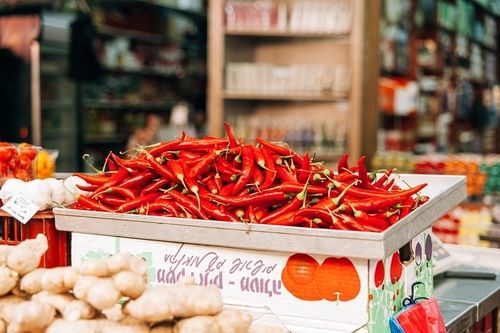Continuing our series on adding unusual ingredients to beer, this week we are talking about how you can go about adding chilli peppers to beers to give your beer a kick of heat. Chilli beers aren’t for everyone but they present a fun and interesting challenge to brewers which can be quite rewarding if you get it right – plus, if you don’t warn your friends, you get the enjoyment of watching their faces.
‘Chilli peppers can make multiple contributions to your beer. As well as the heat and spiciness that you would expect you can also get a nice, subtle fruitiness depending on which stage you add the chilli at.
There is also a good range of chilli peppers available to brewers so there is plenty of scope for experimentation, from anaheim peppers which are sweet and not hot right through to varieties like the Naga Viper. When adding peppers to your beer you should make sure they are deseeded and de-vined and then sliced.
When it comes to adding your chilli, again you have several options. The most obvious way is to add the peppers in the boil. This will give you the spice and the heat without any aroma contribution (as, similar to hops, this will be boiled off). This is a ‘clean’ heat as it is just warmth without pepper sweetness or fruit character. This can be a really interesting characteristic if you keep it subtle but not many people will thank you for blowing their heads off! If you choose to add chilli in this manner, leave it until the last few minutes of the boil and allow them to steep in the wort for a short time after you turn off the boil, similar to if you were doing a hop stand.
Alternatively you can ‘dry chilli’. Chop up your chilli’s to give you a good surface area (and again, make sure these are deseeded and de-vined) and pitch them directly into your fermenter. This works well in terms of adding complexity as you will get heat and spiciness but will also retain more of the aroma and flavour contribution of the chilli. In terms of how much chilli to add, this depends upon the variety and size of the chilli being used. A good method to help judge is to take a plain beer and to add chilli in small quantities until the taste is where you want it. Then you can scale this up for your full batch.
You can add the peppers to the mash too, similar to mash hopping. The heat should be quite intense from doing it this way but as you will be boiling the wort you will likely boil off the majority of flavour and aroma that you would get from the peppers.
Finally you can add peppers directly to your bottles. This is a unique way to present your beers and will also give you the freshest and most intense aroma and flavour. As you age the beer, this character will develop in the bottle over time, becoming more intense. The only warning is that adding things in the bottle can create nucleation points which cause a vigorous frothing when you open the bottle. You will also need to ensure that you sanitise the peppers before adding them to the bottle, normally by soaking them in vodka before you put them in.
Once you’ve decided how you want to add the flavour it’s time to decide what beer you are going to add it to. Chipotle Porter is a popular style with many homebrewers as the pepper character can work well in a good smoked porter or a big robust porter and the complexity of the base beer can handle further complexity well without becoming muddled. If you are looking to do something a bit different though then maybe consider how the spicy, fruity characters would complement the spicy and fruity yeast characters of a Saison; or how the heat from the peppers would work with the alcohol heat of a traditional Belgian beer. You’re not limited to any one beer style when it comes to this kind of addition so don’t be afraid to play about a bit and see what you like. In cases like this though, it’s often best to keep in mind the mantra that less is more!’
Hopefully you enjoyed this week’s tips for adding pepper to beer and it has inspired you to give it a go yourself. Let us know what you plan to brew, either in the comments below or by emailing us at [email protected]
